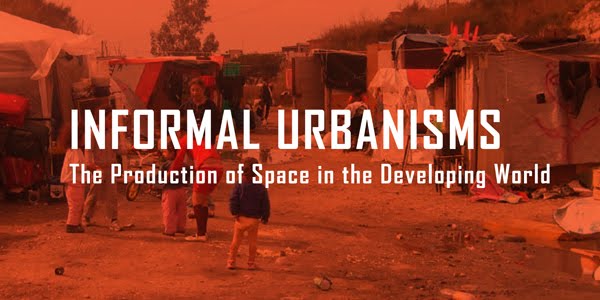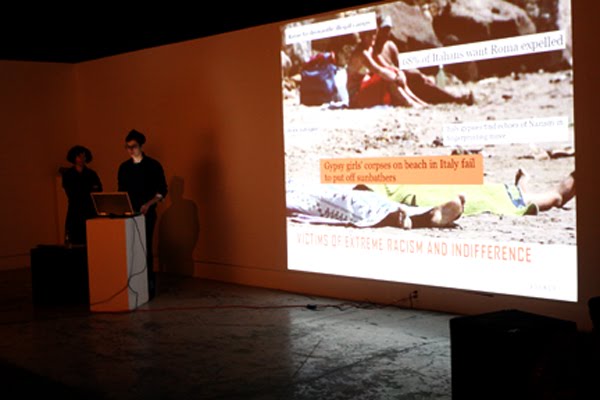>
Thanks to everyone who braved the snow to attend our event at La Esquina Gallery this Wednesday. Special thanks to our friends at Urban Culture Project, C+G Construction, Boulevard Brewery, and Fresher Than Fresh for making the night such a success.
Below is a transcript of our introduction to the evening and photos from the event.
INFORMAL URBANISMS: THE PRODUCTION OF SPACE IN THE DEVELOPING WORLD
We’re all here tonight because we share an interest in the city. We have an audience of architects, urban designers, researchers, aid workers, and interested citizens with a stake in cities around the world. The city continues to be an unmistakable expression of humanity in all its modes. Tonight we will talk about its emerging forms, its people, its dreams, and its possible futures.
The world is urbanizing. For the first time in history more than half of the global population is living in cities. And this number is only expected to grow.
At the same time, using conservative estimates, over half of the population is living in poverty.
With substantial overlap between these two staggering figures, over 1 Billion people are living in urban slums. The majority of development throughout the world will continue to be primarily informal, extralegal, and transpolitical for years to come. It is a new paradigm. Slums are the cities of the future.
As architects and urbanists, we should recognize that the modernist dream of the rationally planned city has decidedly become an obsolete model. As we expend our energies on commissioned projects in comparatively wealthy countries and cities, we ignore the reality of much of the world.
While the planned city densifies, the unplanned city grows. Demonstrating a unique logic, often taking advantage of circumstance and seemingly negligible opportunities to stake a claim for survival.
Favelas, shantytowns, transit camps, refugee camps, and squatter settlements have become the new face of the city, emerging in response to crises both natural and man-made. These seemingly temporary solutions for living have become permanent fixtures, some rivaling the size and complexity of the world-class metropolis.
Historical approaches to intervention in these environments have failed.
Leading organizations of the developed world have taken one of two approaches : to cite the unique examples of success stories to justify leaving the developing world to its own devices, or to lend a helping hand with sustained humanitarian aid.
The first approach, suggesting the developing world “pull itself up by its bootstraps” is largely used as an excuse to maintain the status quo, offering improvements in name only.
The second approach, sustained humanitarian aid, creates bureaucracies and systems of hierarchy independent of the local population. The voice of the local community is often lost, replaced or distorted by a foreign organization.
New models for development must be imagined.
AGENCY has developed a research objective, that we call “Informal Urbanisms”, that attempts to codify and extrapolate the logic of informal settlements, to learn from their failures, and draw on their various tactics, to imagine new possiblities.
We are interested primarily in areas of the world where the pressures of urbanization and informality co-exist, hotbeds of architectural and urban invention.
Informal developments in this environment can provide valuable insight to designers, planners, and humanitarian organizations interested in their future, and the future of cities in the developed world.
Disadvantaged, marginalized, and displaced populations around the world are consistently able to produce new kinds of urban space in the midst of escalating global density and homogenization.
The film tonight, GARBAGE DREAMS, is a great example of just such an environment, where the inventiveness and resourcefulness of an underadvantaged population has re-imagined their role in the city. The Zabbaleen, Cairo’s traditional community of garbage collectors, has privatized the trash collection industry in the city, bringing trash into their homes to sort and recycle with staggering efficiency.
For years, they have been an indispensable part of the ecology of urban Cairo. By engaging the downbeat of the cycle of consumption in the city, and embracing a role that is stigmatized by the local population, they have created a unique niche for themselves in the city.
—
Maureen Lunn, Panelist
Andrew Mikhael, Panelist
Toby Lunn, Panelist
AGENCY partners Ersela Kripa and Stephen Mueller









